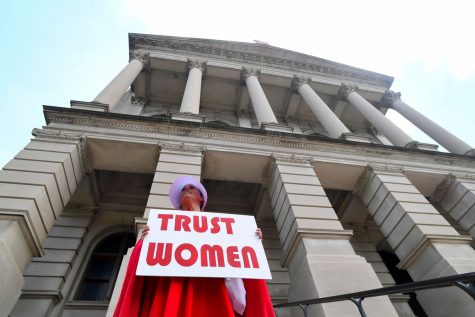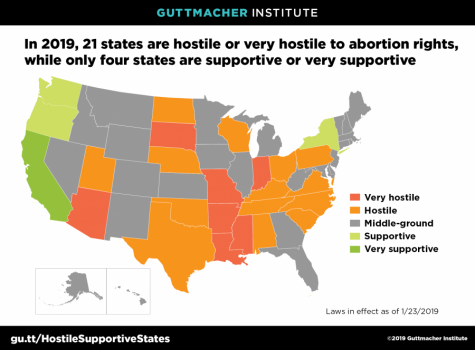Extreme Anti-Abortion Laws Spark Protests Across the Country
Protesters outside the US Supreme Court.
May 23, 2019
Last week, the governor of Georgia signed the most constrictive abortion law in the country. It outlaws the procedure after six weeks of pregnancy. Republican governors of Mississippi, Kentucky and Ohio have signed similar laws this year, thus making an anti-abortion movement.
Red-state governors and legislators are rushing to enact tough laws against abortion in hopes that a more conservative Supreme Court is ready to rule favorably against Roe v. Wade.

These “heartbeat laws” ban abortion when a fetal heartbeat is detected, which occurs as early as six weeks into pregnancy.
The Georgia law makes exceptions, allowing later terminations of pregnancies resulting from rape or incest, something not included in every version of these laws. This is unlike the new bill proposed in Alabama, where there are no exceptions for women or children who were victims of rape or incest. Doctors who perform the procedure could face 99 years in prison, which is far more years than rapists have faced who committed the violent crime.
It’s important to know that all of these laws will be detained in the courts for quite some time, or until Roe v. Wade is withdrawn. Clinics in states with new anti-abortion laws have reported numerous calls from women who are unsure whether they can still come in for their appointments–which they can. Far too many women in the United States can’t afford, or otherwise don’t have access to, abortion.

State Abortion Policy Landscape
With the rise of these laws, there have have been several donations to local clinics and clinic escorts, which are people who walk women into a clinic, shielding them from anti-abortion protestors who often shout, mislead, intimidate, or confuse the women.
Talking about this issue as a country will help abortion rights remain legal and relevant.



